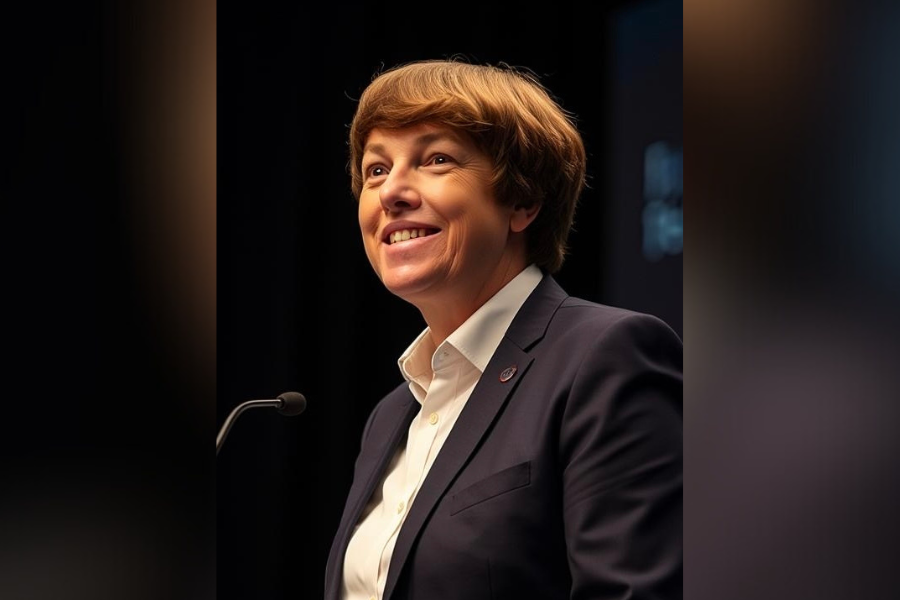
The University of Hawaiʻi John A. Burns School of Medicine (JABSOM) has long been a leader in addressing health disparities experienced by underserved and underrepresented populations, particularly those in Native Hawaiian and Pacific Islander communities. This mission continues to expand, now extending to the intersex population.
"At JABSOM, we are committed to fostering groundbreaking research that uplifts underrepresented communities and improves health equity," said Dean Sam Shomaker. "Dr. Stokes' work exemplifies our mission to address health disparities with innovation and inclusivity."
Dr. Alexander Stokes, an Associate Professor in JABSOM's Cell and Molecular Biology Department, is at the forefront of this effort, pioneering research that integrates intersex perspectives and experiences into scientific and healthcare innovations. While their intersex research is a cornerstone of their work, Dr. Stokes also oversees a diverse portfolio of grants and projects, including NSF S-STEM, NSF BSCER, the NSF INCLUDES Alliance (as Co-PI), and the NSF EPSCoR and NSF SCIPE programs (as Key Personnel). Building on three recent NIH awards, they have also secured a second NIH AIM AHEAD grant of $500,000, supporting groundbreaking projects nationally.
Dr. Stokes has an extensive track record of research in cardiovascular health and pain mechanisms, focusing on ion channels such as TRPA1 and TRPV1.
These channels are critical in sensory physiology and inflammation, playing significant roles in temperature detection and pain modulation. Dr. Stokes’ work has contributed to advancing our understanding of their impact on human health and disease. This field gained global recognition with David Julius’s recent Nobel Prize-winning research on these same ion channels, which underscored their importance in sensing and responding to external stimuli.
A core component of Dr. Stokes’ current work is advocating for intersex health and data equity. Intersex is a broad term encompassing individuals with biological sex characteristics that do not fit typical definitions of male or female, representing approximately 2% of the global population. Despite this prevalence, intersex individuals remain vastly underrepresented in scientific and medical research and face significant health disparities.
"The intersex population includes individuals with variations in sex characteristics," Dr. Stokes explains. "This encompasses differences in chromosomes, hormones, reproductive anatomy, and secondary sexual characteristics that do not align with typical definitions of male or female. It’s important to distinguish that being intersex is a biological variation, separate from gender identity or being transgender."
In one of their key projects, Dr. Stokes is addressing this gap by analyzing electronic health records from 3 million patients, leveraging advanced Artificial Intelligence (AI) and Machine Learning (ML) modeling. Supported by NIH AIM AHEAD funding, this work identifies health risks and outcomes specific to the intersex population, paving the way for targeted interventions and innovative basic science research. "We’re asking foundational questions: What are the risks? What are the patterns—no matter how small? These are essential steps to ensure intersex individuals receive equitable healthcare," Dr. Stokes explained.
Their advocacy extends beyond research. In a recent letter to Nature, Dr. Stokes along with the two largest intersex advocacy groups in the US, called on the NIH to establish a biological resource and data repository focused on intersex individuals, akin to the Multicenter AIDS Cohort Study.
The National Institute of General Medical Sciences has acknowledged this unmet research need, marking an important milestone in advancing intersex-centered research.
As the work progresses, Dr. Stokes highlights the critical role of community involvement in advancing this mission. "While grants enable many important achievements, innovation often requires additional resources beyond mainstream NIH and NSF funding, which can sometimes limit flexibility," they explained. "Donations and contributions empower us to push boundaries, pilot new ideas, and maximize the impact of our research."
Dr. Stokes attributes much of their success to their outstanding team, which includes Josh Burkhart, Troy Wooton, Beverly Rice, and Kartik Saini. "I couldn’t do any of this without my incredible team," they said. "Their talent and dedication make it possible to turn ambitious ideas into actionable, impactful research."
"Hawaiʻi has a unique cultural history of embracing intersex and non-binary individuals," Dr. Stokes added, referencing the Kapaemahu stones and the state’s non-binary driving licenses. "This research is deeply relevant here in Hawaiʻi, a place known for its cultural acceptance and inclusivity," Dr. Stokes added. "We invite everyone to join us in building a future of health equity and inclusion, fostering a safe and supportive environment for advancing this critical work."
If you would like to contribute to JABSOM’s intersex research efforts, please click here.